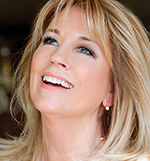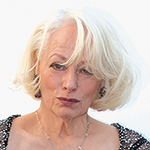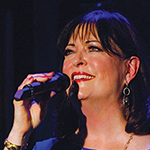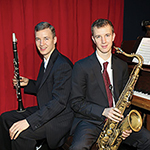Susan Hodgdon
I Could Go on Singing
Susan Hodgdon Sings the Songs of Judy Garland
March 25, 2016
Reviewed by John Hoglund for Cabaret Scenes
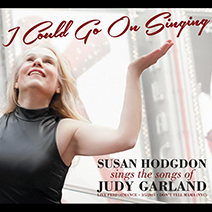 Tribute recordings live or die by the performer’s ability to interpret the subject’s work. This is usually done in new or inventive frameworks or by how well they evoke the spirit of the original recordings. Judy Garland is an icon. Her show-stopper or gut-wrenching vocals are legendary and offer infinite possibilities for a singer to pay due homage to. It is not something for the inexperienced to tackle without risking obvious comparisons to the famed originals.
Tribute recordings live or die by the performer’s ability to interpret the subject’s work. This is usually done in new or inventive frameworks or by how well they evoke the spirit of the original recordings. Judy Garland is an icon. Her show-stopper or gut-wrenching vocals are legendary and offer infinite possibilities for a singer to pay due homage to. It is not something for the inexperienced to tackle without risking obvious comparisons to the famed originals.
Even with the best intentions and a great team, it’s easy to fall short.
The play list on Susan Hodgdon’s new CD I Could Go on Singing is quite good on the live recording of shows performed at Don’t Tell Mama in March 2015. The recording also includes considerable patter from the show. This doesn’t enhance the great songs and, frankly, is a detriment. As with many live tribute albums, detailed rambling and tedious set-ups to the next song or medley only resemble armchair psychology or gratuitous gushing rather than compelling entertainment. Too often such is the case here, even when done with care. Ultimately, recrementitious and mundane patter fogs the splendor of the musical material. More astute directing would have helped.
One expects more on these powerhouse songs from Garland’s cache. Most have their own built-in drama or emotion. Hodgdon’s sincere but misguided renditions are generally over dramatic or over sung. Consequently, she lacks the emotional heft needed. Best example is the title track. Not one of Arlen/Harburg’s more inspired songs to begin with, her phrasing is awkward and her vocals so scattered it all lands loud and lifeless. There is a lengthy, very bizarre, disjointed medley that makes no sense. In quick succession, it randomly drops a few words from one phrase jumping into another from totally unrelated songs. For instance, in the middle she sings a tidbit from the raw torchiness of “The Man That Got Away” (Gershwin/Arlen) right into the totally frivolous “The Purple People Eater” (Wooley). In all, fourteen songs are crammed together in similar absurdity with no rhyme or reason. Absolutely nothing connects them. This embarrassing melange sounds like something from a neophyte’s lounge act. And so it goes. Many interpretations of Garland’s songs repeatedly fall short on cut after cut.
Vocally, Hodgdon often relies on a brittle belt that can be shrill. Frequently, she strains at the top of her range. More intimacy is needed throughout the album. She and her team seem oblivious to obvious pitch problems that permeate the album (in spite of good arrangements). Many songs are too rushed and get lost interpretatively due to choppy, throw-away phrasing. Songs like “But Not for Me” (the Gershwins), “Alone Together (Dietz/Schwartz) and “Heartbroken” (Springer/Ebb) are passionate odes. They are unabashed pleading testaments of love and yearning. Garland sang them with simplicity and a heartbreaking wistfulness that was haunting.
Hodgdon has them on speed dial.
The late, great Sylvia Syms didn’t have a conventionally great voice like Garland. Yet, she was one of the great cabaret singers of her era. Why? She knew how to tell the truth in a lyric and, staying within her limited range, let the words tell the story with modest nuances and flawless timing. Julie Wilson and Mabel Mercer had similar qualities even when they were talk-singing. These are fair examples since Hodgdon has taken on a monumental icon such as Garland. All too often, she breezes through a song like she is chasing the beat of a metronome.
There is hope. The album, which includes mostly Garland songs and a few mildly associated with her, includes a fine arrangement of a well paced “I Concentrate on You” (Porter). Here, with less power-belting and more refined phrasing, her voice is richer and she proves she is very capable of insightful delivery. More of this is called for.
Hodgdon has good intentions with a good spirit and that counts for something. Sadly, there were flaws in the show at Don’t Tell Mama to begin with. However, through today’s technology and judicious editing (not every song had to be included) this disc could have been tighter and better on all levels.
With Daryl Kojak as musical director, the CD includes arrangements by Kojak and Bill Zeffiro.


